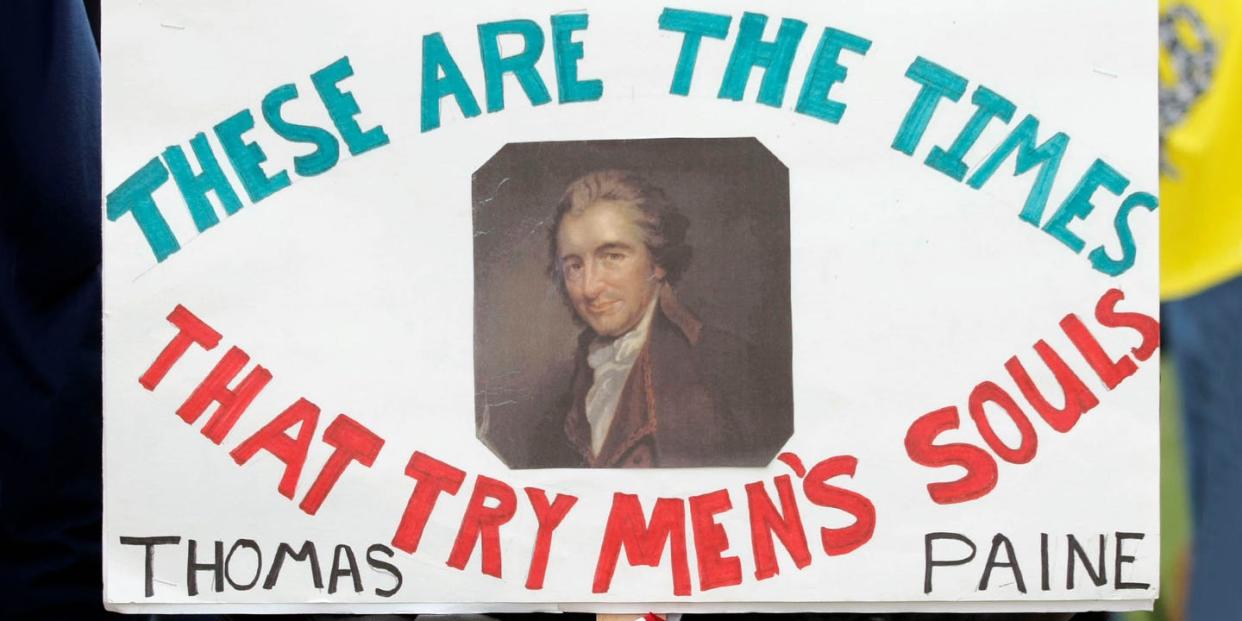Nobody Saw America as Clearly as Thomas Paine

This Tuesday, we celebrate a high holy day for all scurvy political bloggers. On January 29, 1734, in Thetford in England, Joseph and Frances Pain had a son named Thomas. In 1774, Tom came across the pond and, with an E added to his last name, immediately began to start the right kind of trouble.
He wrote and he wrote and he wrote some more. He virtually invented American political polemic. He later made trouble in France and was nearly beheaded for his trouble. (He was bailed out by an American diplomat named James Monroe.) He died, penniless and almost friendless, in 1809 and, after he was buried, a Brit named William Cobbett dug up his bones and brought them back to Great Britain. They promptly got lost among Cobbett's effects when the grave robber died and that's the end of the story. Except that his spirit lives on in every great American troublemaker-especially, as John Lewis likes to say, the people who make "good trouble."
Most people know Paine from Common Sense, the first American bestseller, and The Crisis, which he wrote as a common grunt in the Continental Army at its lowest point.
These are the times that try men's souls: The summer soldier and the sunshine patriot will, in this crisis, shrink from the service of their country; but he that stands it now, deserves the love and thanks of man and woman. Tyranny, like Hell, is not easily conquered; yet we have this consolation with us, that the harder the conflict, the more glorious the triumph. What we obtain too cheap, we esteem too lightly: it is dearness only that gives every thing its value. Heaven knows how to put a proper price upon its goods; and it would be strange indeed if so celestial an article as freedom should not be highly rated.
Nobody saw America more clearly. Nobody stated its promise so clearly. Happy birthday, my brother.
Respond to this post on the Esquire Politics Facebook page here.
('You Might Also Like',)

